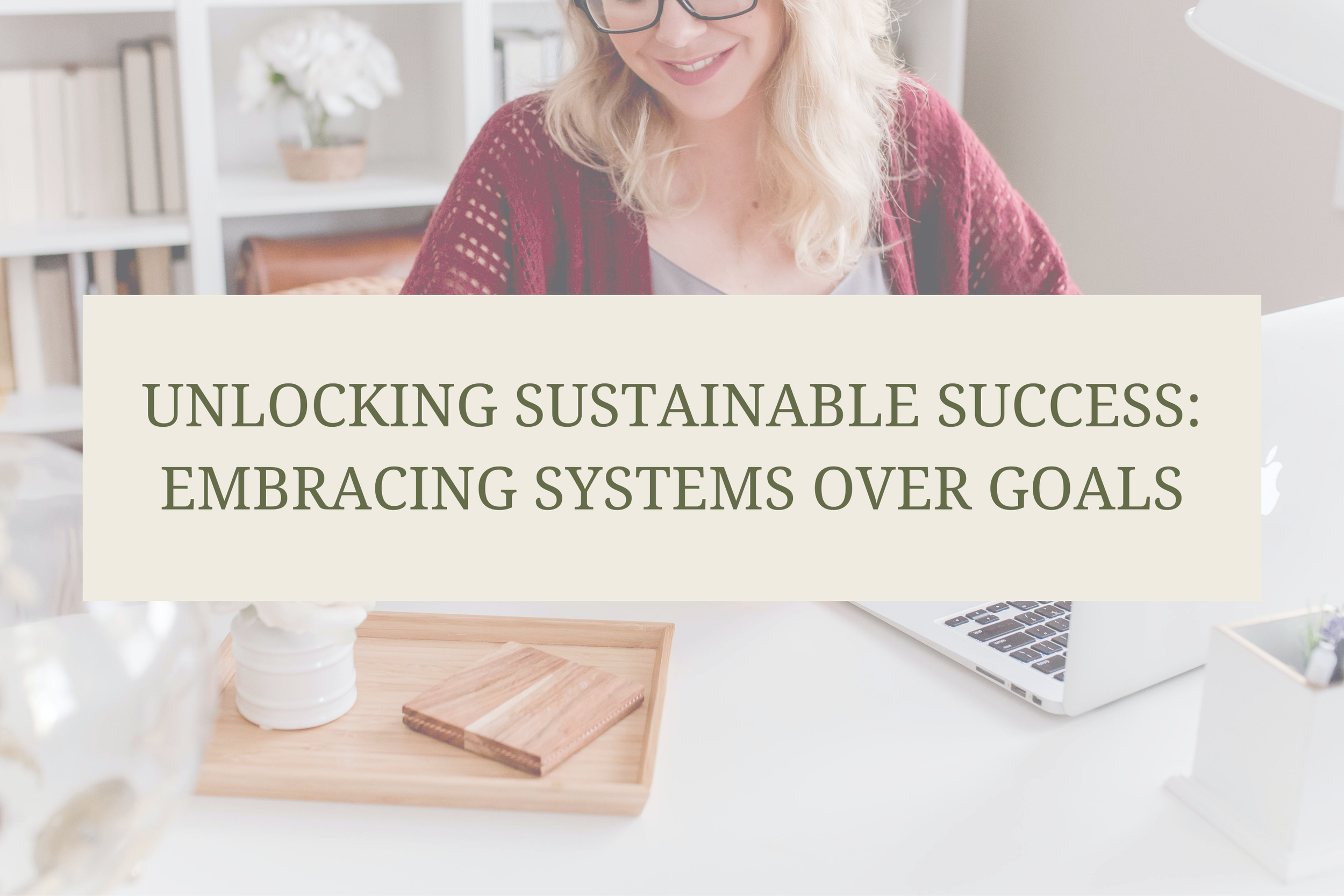Unlocking Sustainable Success: Embracing Systems Over Goals
The Power of Systems: Transforming Success Beyond Goals
In a world obsessed with setting and achieving goals, it's time for a paradigm shift. We're starting with something fundamental here, and focusing instead on the power of systems, processes, and long-term sustainability. By making this shift, we can attain attain the balance, finances and longevity we crave.
The goal dilemma:
Goals are like stars on the horizon—always just out of reach. They can leave us feeling perpetually unsatisfied, as if our destination is forever on the horizon.
Here's the thing: whatever industry you're in, at some point your nearest fellow professional (let's try and avoid saying competitor, there's space enough for us all) will almost certainly have had similar ambitions to you. That might be financial, it might be a one-off outcome, it might be a specific launch or sale. Perhaps they've met that goal - hurray - time for fizz! But then what happens? How did meeting that goal change things for them? And more to the point, how did they do it?
Goals can also make us feel like we're never there. That there will be found when we've only achieved the next goal...and then the next...and then the next...but having systems in place that create sustainable, balanced success (note: balance doesn't have to mean lack of ambition) really will make it all easier.
The power of systems:
Of course, goals are exciting. For one-off projects it can be really fabulous to set some very specific goals (there's a reason why companies spend so long on SMART goals).
Rather than fixating on specific goals, prioritise the creation of systems that foster sustainable, balanced success. This isn't about stifling ambition; it's about making your journey easier and more efficient. Systems can be applied to various aspects of your life, work, and business, including:
- staying on top of the laundry
- systems for your accounting
- systems for client booking
- systems for taking payments
- systems for recording ideas and translating them into action points
- systems for responding to and tracking emails
- systems for keeping on top of life admin (utilities, kids' school emails, insurance).
Here's a 5 step suggested process/ points to reflect on, to work on your systems:
1. Make a list:
Create a list of things you have to do regularly (for business, take this to the next stage by working out which of these, if any, bring in the quickest profit for the least work). Know yourself well enough to know how you like to make lists - paper and pen? Computer? Phone notes? Dictation app?
2. Simplifying:
What would make this easier? Batching? A little a day? A little a week? For business, look in your work diary and add this as an appointment. For home (let's go back to the washing) ask yourself what it is that you find stressful about this. Having to take the dry washing, sort it downstairs and then take it upstairs? What happens if you sorted it upstairs? Or had multiple baskets (one per person) or segmented baskets? A simple example, but one that can really change how you feel.
3. Introducing systems:
What system can you replace the goal with? Let's imagine your goal is to get 100 new email sign-ups. What systems can you put in place to make this happen, so it doesn't become a stress? A new blog a fortnight with SEO and keywords focus? 10 minutes of Pinterest pin creation and pinning a day?
4. Build in flexibility:
As a massive fan of working with your energy, living cyclically and seasonally it's essential for me to build this into my systems. It's why every system you adopt needs to recognise the times in your life, cycle or season when your time and energy are going to be stretched and challenged. As an example, I know that I take so many more photos when spring bulbs emerge. I find this such a stimulating time. In turn, this means I tend to write oodles of content, more poetry than before, get more done. Use an energy tracker (search P tracker or just create a simple key in your diary/ calendar), track your energy for 2 months and then build this into your systems.
5. Keep it manageable:
Never establish more than one system for work and one system for home at any one time. Get those systems in place. Don't let them slip. Keep focusing on them until they are habits you no longer actively consider. Then, when a goal comes up use that in line with your systems.
In our relentless pursuit of goals, we often overlook the power of systems. While goals have their place, they shouldn't overshadow the importance of sustainable, holistic systems that can transform how you work and live. Embrace the shift towards systems, and you'll find the balance, efficiency, and lasting success you've been searching for.
I would love to know what you think about this. Come and discuss it in the comments below.
With love,
Laura x
*P.S. The "systems not goals" is most frequently cited by James Clear in Atomic Habits - one of a handful of books I can truly recommend to all. Whilst I don't agree with all his theories, his writing is clear and thought-provoking.
If you enjoyed reading this blog post, here’s a few more that you may find useful for your creative small business:

